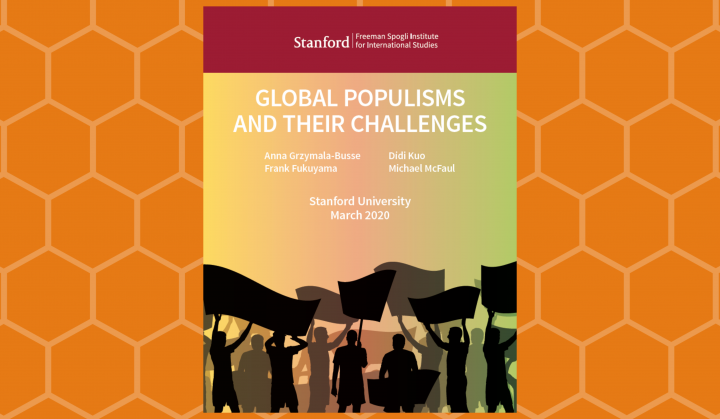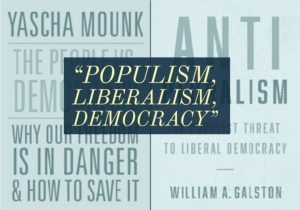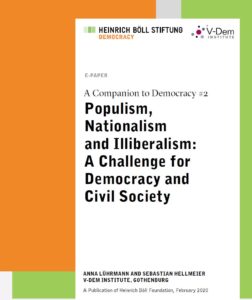
Freeman Spogli Institute for International Studies
Grzymala-Busse and the paper’s co-authors – who include director of the Freeman Spogli Institute for International Studies (FSI) Michael McFaul, a former U.S. ambassador to Russia [and former National Endowment for Democracy (NED) Reagan-Fascell fellow], and political scientists Francis Fukuyama [and former National Endowment for Democracy board member] and Didi Kuo – argue that populism is a political problem that requires political solutions. Their paper, Global Populisms and Their Challenges, released Mar. 11 through the Freeman Spogli Institute for International Studies (FSI), outlines what mainstream political parties must do to protect democracies from populists, including strategies such as reclaiming the rule of law and upholding democratic norms and values.

National Endowment for Democracy
Populism threatens democracies in three ways, the analysis suggests:
• Populists undermine formal institutions such as the courts, legislatures, and regulatory agencies as creations of the ‘corrupt elite.’ As winners of democratic elections, they fail to constrain themselves and instead hollow out and politicize formal institutions of liberal democracy.
• Populists redefine the people, often by excluding vulnerable ethnic or religious minorities, immigrants, and marginalized economic groups. The result is majority rule without minority rights.
• Populists erode the informal norms of democracy. They question the loyalty of the opposition and decry criticism as fake news. Rather than tolerating the free press and political opposition, they instead try to undermine its legitimacy.
 To address these threats [also discussed in a recent paper from the Heinrich Boll Stiftung – right], we need to end the erosion of formal institutions, informal values, and the very integrity of our democratic process, the paper adds:
To address these threats [also discussed in a recent paper from the Heinrich Boll Stiftung – right], we need to end the erosion of formal institutions, informal values, and the very integrity of our democratic process, the paper adds:
Political parties are the critical actors here. They can and should change their rhetoric and electoral strategies to emphasize the importance of community, rule of law, and the integrity of the electoral process. The necessary reforms of parties and political institutions will not be easy—the status quo benefits incumbents in the short run, even as they undermine democratic processes in the longer term. Currently, developed democracies run the risk of erosion by domestic populists and successful attacks by international authoritarians.
To protect democracy, we need to reclaim the rule of law, emphasize the importance of a broad national community, and underscore informal democratic values and norms, the authors conclude. RTWT







